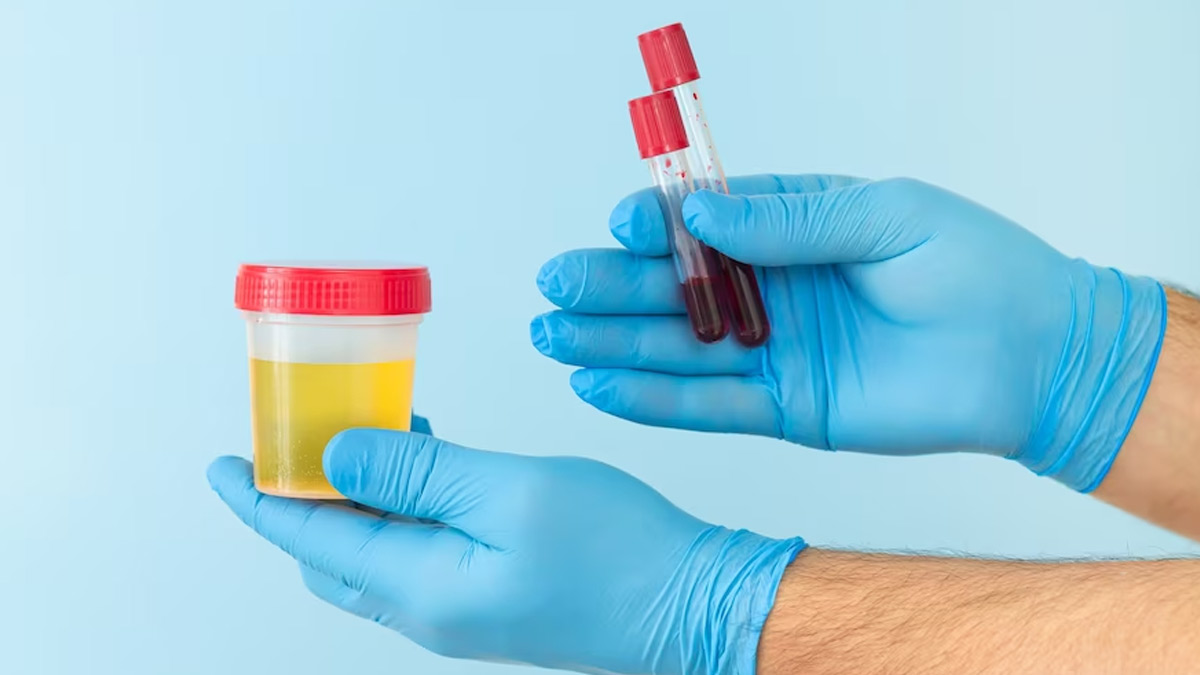
Have you ever noticed blood in your urine? Blood clots in the urine are an ominous sign and indicate that the bleeding is significant. It may be caused due to several factors like trauma, Urinary Tract Infections (UTI), or bladder cancer. If not treated, it may result in health conditions like sepsis and low blood pressure. We spoke to our expert Dr Gutta Srinivas, Senior Consultant Urologist and Transplant Surgeon, Clinical Director-Department of Urology, Yashoda Hospitals, Hyderabad, who explained this condition, its causes, and complications.
“Most often, the blood clots in the urine are amorphous. However, when the bleeding is from the upper tract (kidneys and ureter), the clots are worm or thread-like”, informed Dr Srinivas. These blood clots may frequently be seen in the urine or may be present in addition to pain that never goes away.
Interpreting Blood Clots in Urine

Dr Srinivas said, “If the bleeding is from the kidneys or ureter it’s usually associated with pain. On the other hand, if the shape of the clot is worm or thread-like then the bleeding is from the kidneys.”
According to the National Institute of Diabetes and Digestive and Kidney Diseases (NIDDK), If blood clots in urine get large enough to obstruct the ureters (vessels that connect the kidneys to the bladder) or the urethra, they can cause pain.
Also Read: Blood In Your Urine? Expert Lists Signs In Your Pee That Can Indicate Bladder Cancer
Causes Of Blood Clot In Urine

It is important to identify the underlying causes of blood clots in urine for the necessary treatment. Dr Srinivas listed its causes as follows:
- Trauma: Physical injury or trauma to the urinary tract can lead to bleeding and the formation of blood clots.
- Arterio-Venous Malformations: Malformations in the blood vessels within the urinary system can contribute to abnormal bleeding.
- Iatrogenic Causes: Post-surgeries on the urinary tract can sometimes result in bleeding and the formation of blood clots.
- Drug-Induced: Certain medications, such as antiplatelets and anticoagulants, can increase the risk of bleeding and blood clot formation.
- Urinary Tract Infections: Infections in the urinary tract can cause inflammation and bleeding, leading to the presence of blood clots.
- Renal Calculus Disease: The presence of kidney stones can cause irritation and damage to the urinary tract, resulting in bleeding.
- Prostatomegaly: Enlargement of the prostate, whether benign or cancerous, can contribute to blood clots in the urine.
- Renal Tumours: Tumours in the kidneys can lead to bleeding, and the presence of blood clots may indicate this underlying condition.
- Bladder Stones: Stones in the bladder can cause irritation and bleeding, manifesting as blood clots in the urine.
- Bladder Cancer: Cancerous growths in the bladder can be a significant cause of blood clots during urination.
Complications of Untreated Blood Clots In Urine

- Hypotension (low blood pressure)
- Shock
- Anaemia
- Clot colic
- Acute urinary retention
- Urinary tract infection
- Sepsis
When Can Blood Clots In Urine Signal Danger?

Blood in the urine is not uncommon, usually, it's mild in nature, but blood in any form or quantity is an ominous sign.
“It signals danger when someone is passing large and bright red-coloured clots in the urine. It indicates significant bleeding can lead to hypotension and shock. These individuals need urgent care in an emergency department”, highlighted Dr Srinivas.
[Disclaimer: This article contains information provided by a registered healthcare professional and is for informational purposes only. Hence, we advise you to not substitute it with medical treatment and consult your doctor for the necessary treatment.]







